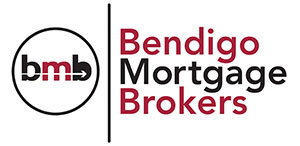Investing in real estate is a way to build wealth and achieve capital wealth, as the property’s value can increase over time. However, finding the right property to suit your needs requires time and research.
What real estate should I buy?
There is a range of factors to consider when choosing a property, as you must consider the differences between a house, a unit or a block of land and which one suits your circumstances. A house may be easier to rent but is expensive to purchase; whilst a unit might be a cheaper option, the area might have a low volume of demand for units. The land is different as you will get no rental income from it, but capital growth is potential if the area is further developed. You should also consider the upkeep or maintenance of an investment property. If you buy one that is old and needs work, this can drain your resources, whereas a low-maintenance property can be easier to manage, especially if the tenants leave the house and garden in a bit of a mess.
Where should I buy?
Choosing a location can depend on the type of investment you wish to make and what you want to gain from the property. Some areas, such as a developing suburb, may have more excellent capital growth opportunities, while others might be better for rental returns, such as near a university. This decision is yours, so you must be comfortable with where you have purchased the property. There is no right or wrong choice, just as long as you have researched your investment.
What type of loan is available?
Firstly, investment loan interest rates are slightly higher than owner-occupied interest rates, and you can only borrow up to 90% of the purchase price unless you are using the equity in your home. Then, you can borrow up to 100% of the purchase price. If this sounds confusing, we are here to help you and can explain this to you in facts and figures so that you understand it all.
The two types of loans are:
- Variable interest rates – These rates fluctuate based on the RBA’s cash rate and the market conditions, which means when the rates drop, you get access to the lowest rate available to your circumstances. On the other hand, if rates rise, your interest rate will also increase, affecting your minimum repayments.
- Fixed interest rates are when you fix your interest rate for years, usually between 1-5 years. Fixed-rate can give you certainty of your repayments, but if rates fall and you’re locked in at a higher rate than the variable, this can cause you pain. But also, if rates rise and you’re fixed at a lower rate, this can be an excellent decision for you! Either way, you need to think carefully about your choices when fixing a loan.
With an Investment Loan, you can utilise two different repayment methods for paying the loan back, which are:
- Principal & Interest Repayments—When you make repayments on your loan, you will pay interest but also pay off your principal, which will reduce the loan balance over the term of the loan.
- Interest-Only Repayments—Your repayments will only pay the interest on the loan, and your principal will remain the same. Typically, a bank will allow you to have an interest-only period of 5 years, with another 5-year option after that if required. They then want you to convert your loan to principal and interest to begin repaying your loan.
Some tips
- If you are considering an investment property, seek advice from your account; they can provide valuable taxation advice.
- When budgeting for your investment property, always do your sums on having the property vacant for 1 -2 months per year in case the tenant vacates.
- Remember to allow for council rates, house insurance and land tax expenses.
We recommend researching areas you may look to invest in, but we will sort the finances out for you! Contact us for more information or to book an appointment to learn more!


